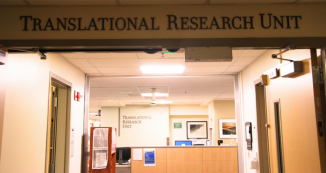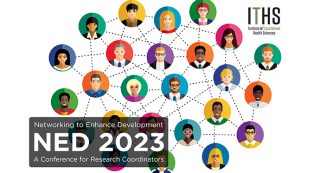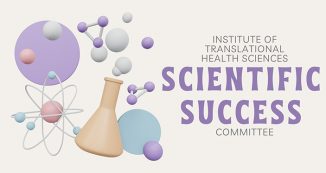
09 Jun Hiring Versus Contracting: What Research Staffing Model Best Fits your Study?
You know you need research support staff for your study. The question is: should you hire your own staff or utilize a staffing resource like the Institute of Translational Health Sciences Research Coordination Center?
We turned to Laura Baker, a Research Nurse and the Research Program Manager at the ITHS Research Coordination Center, for answers.
When should an investigator use a staffing solution like the Research Coordination Center?
Our general recommendation is that if an investigators research staffing needs are less than full-time and less than six months, they should utilize our Research Coordination Center. Our services are flexible, allowing investigators to increase or decrease usage as needed.
We also help investigators cover busy periods or short-term staffing needs, such as maternity leave and unexpected absences.
When should an investigator consider hiring research staff?
We recommend that investigators hire their own staff if their needs are greater than 0.5 full-time equivalent (FTE) and longer than six months.
While that is our general recommendation, it really is an individual choice for every investigator. Some investigators prefer to work with us, regardless of study length or staffing needs, because we offer an established research management infrastructure. We also handle human resources, taking care of things like performance appraisals, raises, etc. Many investigators like to utilize the Research Coordination Center because we handle those HR tasks for them.
What questions should investigators ask themselves when making this decision?
The best thing for investigators to do is assess their clinical trials and funding pipeline. What investigators don’t want to do is hire a coordinator and then let him or her go after six months because the funding dried up. If the funding or project pipeline is robust, it is probably best for investigators to hire their own staff. If they are not sure, they can work with the Research Coordination Center. Because we are so flexible, there is less risk for investigators since our flexible staffing model allows them to increase or decrease usage as needed.
Investigators can also use a hybrid model. For example, we recently worked with an investigator who had eight clinical trials in his pipeline. He worked with the Research Coordination Center to get the studies started and running. Once the studies got off the ground, he hired his own coordinator.
What are some of the advantages of using a staffing service like the Research Coordination Center?
Investigators only pay for the services they use. For example, if a study gets delayed and we are not working on it, we will not charge investigators. They only pay for the hours our staff spend directly supporting their projects.
Our flexible staffing model allows investigators to flex usage and support, as needed. If things get hectic, we can easily—and quickly—add another staff member to help out. If a study is delayed, we can move our staff to other projects until the study is ready to resume again. Another benefit is that we offer flexible support. We can help with just one part of a study, such as recruitment, or handle it all.
Investigators gain access to the collective experience of the staff at the Research Coordination Center. Our research staff do not work in isolation. They have a multidisciplinary team of experienced research coordinators, regulatory specialists, research nurses, and study monitors backing them. Every investigator who works with us gains access to that collective knowledge.
The Research Coordination Center provides a research infrastructure. Some investigators do not have research teams to hire into. Because of that, they choose to work with us, even if they have a need for more than 0.5 FTE. We help with everything from protocol development to recruitment to clinical study monitoring.
Do you offer any services to investigators who want to hire their own staff but need help getting started?
Yes, we provide onboarding training and support to help get research staff off to a strong start.
How can investigators learn more about the Research Coordination Center?
Investigators can visit the ITHS Research Coordinator Center web page to read more about offerings or to request services.








